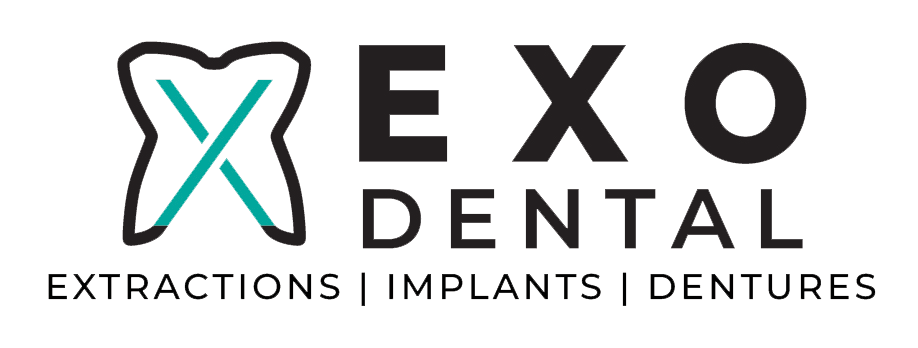What You Should Know About Sedation Dentistry
Visiting the dentist can bring anxiety and fear for many people. Sedation dentistry offers a way to manage these feelings, making dental visits more comfortable and less stressful. Whether you experience mild unease or severe dental phobia, sedation can help you relax and get the care you need without the discomfort of anxiety.
Sedation dentistry involves using medication to help patients relax during dental procedures. Different types of sedation, from mild to deep, cater to various needs and levels of anxiety. This approach can be a game-changer for those who avoid the dentist due to fear, ensuring they maintain their oral health.
By understanding sedation dentistry, you can approach your dental appointments with confidence and ease. With options tailored to individual needs, sedation dentistry focuses on creating a positive and calming dental experience. This method enhances patient care and opens the door to receiving necessary treatments without fear. As we explore the use of sedation in dentistry, you'll see how it can transform your view of dental visits and help you achieve a healthier smile.
Introduction to Sedation Dentistry
Sedation dentistry is a technique that uses medication to help patients relax during dental procedures. It's especially helpful for those who experience anxiety or discomfort when visiting the dentist. The sedation can range from minimal, where you're awake but relaxed, to deep, where you're on the edge of being asleep but can still be woken up.
There are several types of sedation used in dentistry:
1. Inhaled Sedation: Often called laughing gas, nitrous oxide is inhaled through a mask placed over your nose. It helps you relax, and your dentist can control how much you receive. The effects wear off quickly, allowing you to drive yourself home after the procedure.
2. Oral Sedation: This involves taking a pill an hour before your dental visit. The medication makes you feel drowsy but often leaves you awake. Dosages vary; some people may fall asleep, but a gentle shake usually wakes them.
3. IV Sedation: Administered through a vein, this sedation works quickly. It lets the dentist adjust the level continuously. While you might feel groggy afterward, you'll likely have little memory of the procedure.
4. General Anesthesia: This is used less frequently and is mostly for major surgeries. It makes you completely unconscious.
Benefits of Sedation Dentistry
Sedation dentistry offers considerable benefits, making dental visits more manageable. First and foremost, it helps in reducing anxiety and fear. Many people dread dental appointments due to fear of pain or discomfort. Sedation helps calm your nerves, allowing you to receive the necessary treatment without stress.
Another significant benefit is the improved patient experience. With sedation, you don't have to worry about sitting through long procedures. It feels like time flies by, which is especially useful for those undergoing lengthy treatments. This comfort can encourage more regular dental visits, improving oral health over time.
Sedation also allows dentists to perform complex procedures in fewer visits. Patients who typically can't sit still for long periods, like children or those with certain phobias, will benefit from sedation. Here's why it improves dental care:
- Increased Comfort: Procedures that usually take hours might seem brief and painless under sedation.
- Higher Tolerance for Dental Work: Those previously limited by their anxiety can now undergo more extensive restorative procedures.
- Customized Levels: Sedation can be adjusted to meet individual patient needs, keeping both comfort and safety in mind.
By choosing sedation, you open the door to a smoother, more pleasant dental experience—one that aligns with your comfort level and specific needs.
Common Procedures with Sedation
Sedation dentistry is particularly beneficial during procedures that might otherwise cause discomfort or require patients to remain still for long periods. Extractions and dental implants are among the common procedures that use sedation. These treatments can be lengthy and require precision, making sedation a great option to ensure patient relaxation and cooperation.
Extractions, whether routine or surgical, can be stressful for patients. Sedation helps ease this stress, allowing dentists to perform the extraction efficiently and with minimal discomfort to the patient. Similarly, for dental implants, which involve placing a framework in the jawbone, sedation can make the process smoother and less daunting.
Full and partial dentures also benefit from sedation, especially during fitting and adjustments. Creating a precise fit is crucial for comfort and functionality. Patients may undergo several appointments during denture fittings. Sedation helps manage discomfort or anxiety during these sessions, ensuring the patient is comfortable and that each step is completed with care.
By incorporating sedation, these common dental procedures become more manageable and comfortable for patients, enhancing their overall experience and satisfaction with their dental care.
Safety and Considerations
Safety is a crucial aspect of sedation dentistry. Not everyone is an ideal candidate, so each patient's health and medical history must be assessed. Sedation is typically considered safe, but knowing who can benefit most is essential. Adults and children with high anxiety levels, low pain thresholds, or those with complex dental issues might be good candidates. It can also help those who have difficulty sitting still for long periods.
Preparing for a sedation session is vital for both the dentist and the patient. Before the appointment, patients should discuss their full medical history with their dentist, including any medications they're taking. This step ensures that the type of sedation chosen is safe. Patients should also follow pre-procedure instructions carefully, which might include fasting or arranging for transportation, as some sedation types require you not to drive afterward.
Understanding the safety protocols and preparation steps can enhance the effectiveness of sedation dentistry, allowing for a secure and pleasant dental experience. It's important to address any concerns you may have with your dentist to ensure that sedation dentistry is the right choice for your needs.
Achieving Comfort in Dental Care
Sedation dentistry represents a significant advancement in dental technology, providing comfort and peace of mind to patients who might otherwise avoid necessary dental care. For those with anxiety or those facing extensive procedures, sedation ensures a more relaxed environment, making dental appointments something to look forward to rather than fear. The integration of sedation into dental practices reflects a commitment to patient-centered care, focusing on individual comfort and effective treatment outcomes.
At Exo Dental, we're dedicated to providing a comfortable dental experience. Our use of sedation allows us to offer comprehensive care, from extractions to full dentures, with minimal stress. Contact us today to learn how
sedation dentistry in Arkansas can transform your dental visits into calm, stress-free experiences. Your comfort and peace of mind are our top priorities, and we are here to make your dental care as pleasant as possible.
Don't hesitate to contact Exo Dental in Rogers to discuss your tooth removal and oral surgery options. Hablamos Español.

